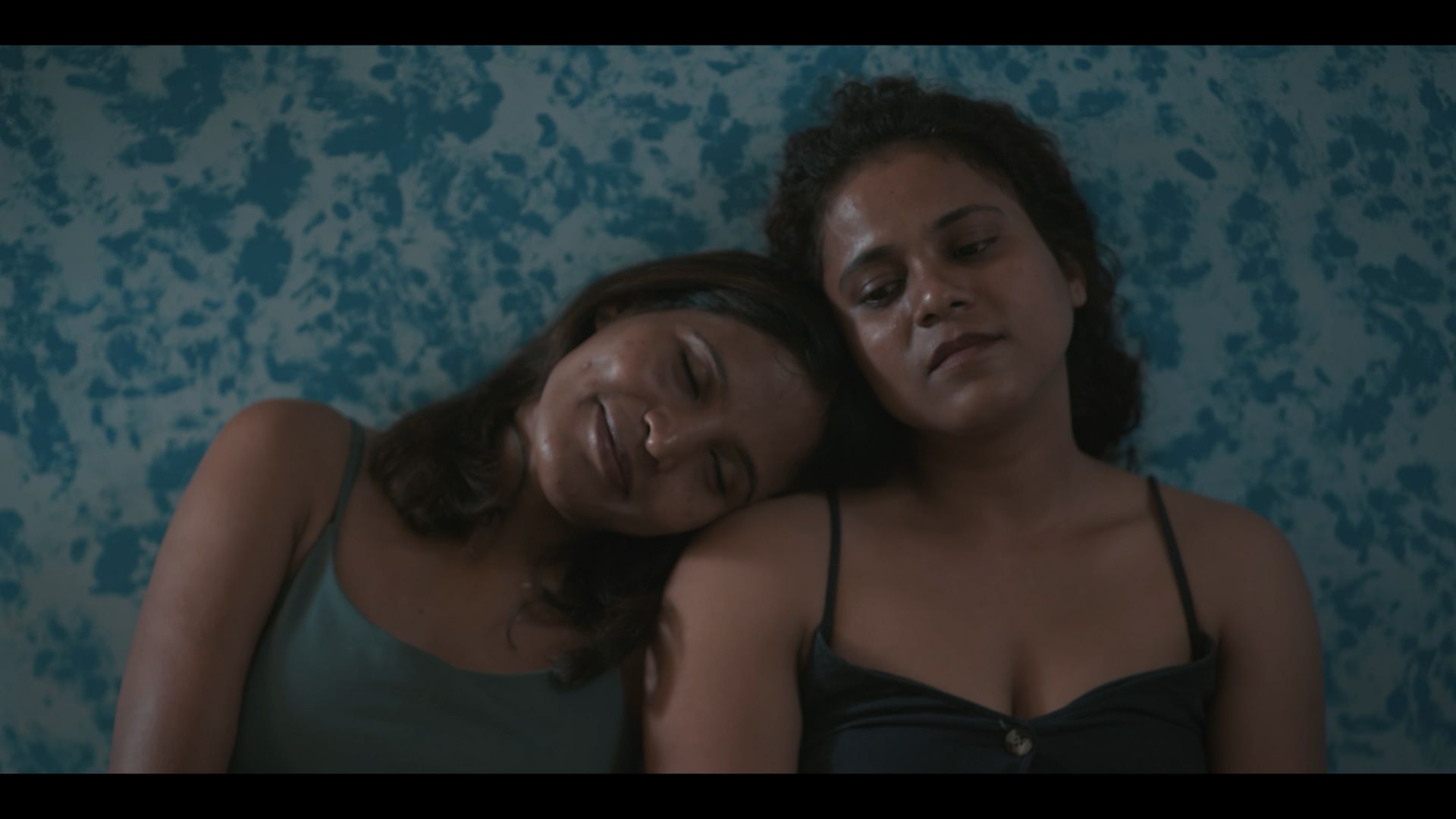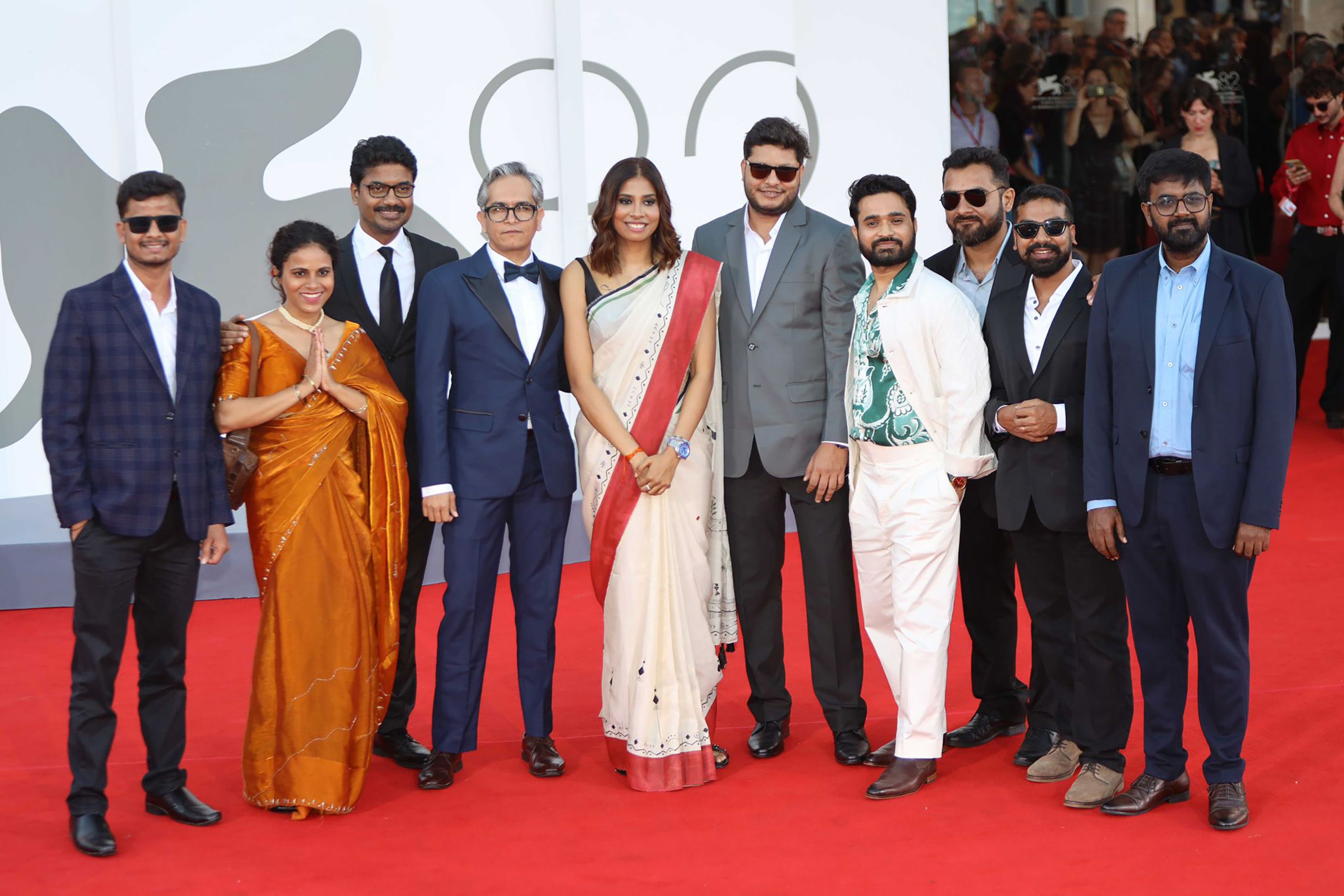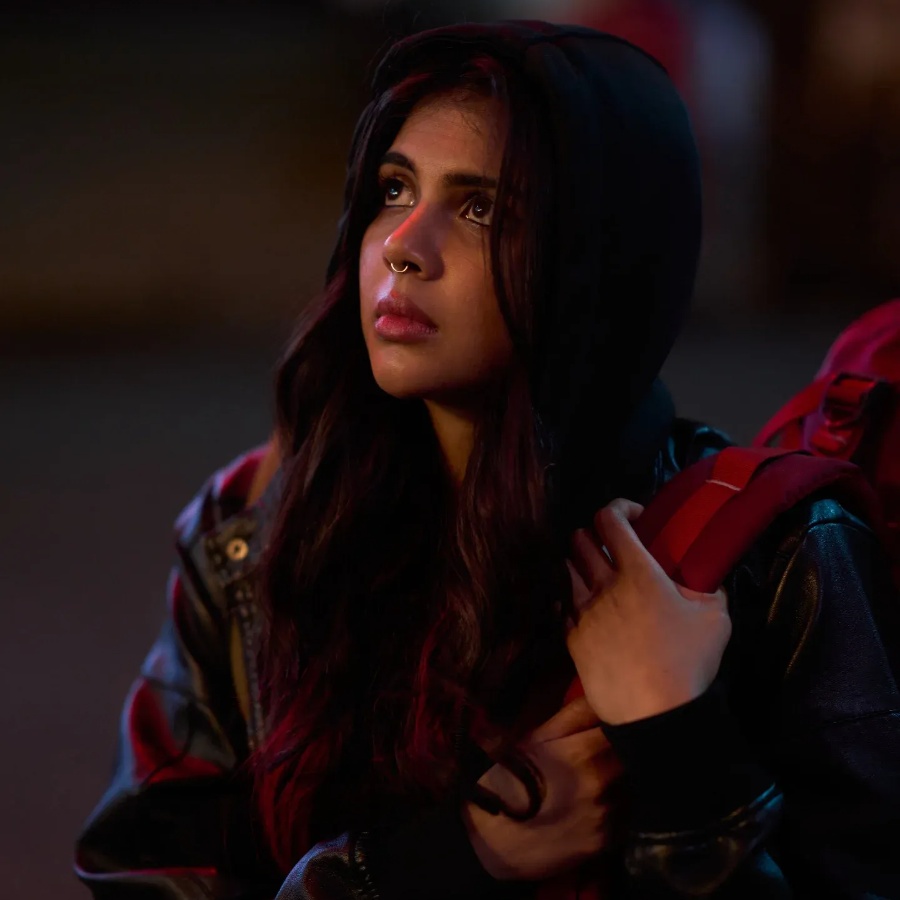Anuparna Roy’s phone has been ringing off the hook all weekend.
As we connect through our Zoom screens, the 29-year-old filmmaker has just landed in Mumbai from her triumphant run at the 82nd Venice Film Festival, where her debut feature, Songs of Forgotten Trees, premiered in the prestigious Orizzonti (Horizons) category and earned Roy the Best Director award last Saturday.
As the first Indian to win the award, Roy has an infectious sense of joy around her. Friends and family continue calling to congratulate her on this stupendous achievement, while artists she has venerated for years begin to pour in to wish her luck for what’s ahead. “Julia Ducournau just held my hand and would not leave me until the ceremony ended, because she liked my film and acceptance speech so much. I just said, ‘You have no idea how much I love you; this is a fan moment for me,’” Roy says.
Roy’s path to Venice began far from red carpets, flashes, or celluloid reels. The filmmaker grew up in Narayanpur, a village in Purulia district of West Bengal, where cinema wasn’t something to be studied or dissected but consumed for entertainment. “Cinema was never a matter of study in my village,” she tells me. “It was always: let’s watch something that is playing on Doordarshan. That was it.” Despite growing up in a world where the process of filmmaking remained a distant idea, Roy never fell short of experiencing the transformative power of storytelling as a medium.
When the heady romances of Shah Rukh Khan and the pulpy potboilers of mainstream Bengali cinema exhausted her senses, Roy turned to the written word. A voracious reader, she went on to pursue English Literature at the University of Burdwan, where she dived headlong into the worlds of James Joyce, William Wordsworth, and William Shakespeare. “I fell in love with the idea of characters—how to understand their inner world, how to write them,” she says. This sharpened understanding of character and interiority, she notes, would become pivotal to writing the ambient, character-led films she wanted to make.
Like most things in life, Roy’s move to Delhi wasn’t planned as a career-driven stepping stone either; it was an escape. “I moved to Delhi under the guise of a Master’s degree, just to feel a sense of liberation,” she laughs. “Inside the village, inside that kasbah, it was pathetic. In school, girls were given rice rations based on our body weights, alongside iron tablets for nourishment. Dalit families were paid by the local government to get their daughters married. I knew I had to leave.” Enrolled in a Mass Communication programme, she quickly realised it wasn’t film studies at all and, in the disillusionment that followed, picked up call-centre jobs, sending money back home to keep questions at bay. While she balanced three jobs in the day, she devoted her nights to writing, eventually saving enough to make her first short film.
“My grandmother never saw a river in her life. She used to tell me stories about rivers, describing them as though they were mythical. When she died, I realised she had never gone, because as a woman she wasn’t allowed to cross the boundaries of her home. That broke me.” Roy turned that memory into a story set in 1930s Bengal, reframing it through the perspective of a Dalit child yearning to see a river. With the freedom struggle as the backdrop, she fused personal longing with political resonance. The film travelled to festivals in Russia and Germany, even catching the eye of veteran documentarian Anand Patwardhan. “It gave me courage,” she admits, “but not access.” Still, she carried her confidence and her notebooks to Mumbai, to pen a story about two women not much unlike her.

The seed of Songs of Forgotten Trees came, once again, from her grandmother’s life. Married at nine to a man three times her age, and widowed at 21, she ended up sharing a household with her stepdaughter, who was the same age as her. “They were like a couple,” Roy remembers. “They laughed, they fought, they shared expenses. They didn’t need a man.” That memory, combined with Roy’s own childhood guilt over being forbidden by her father to befriend a Dalit girl named Jhumaa in her elementary school, became the emotional spine of the film.
Like Payal Kapadia’s All We Can Imagine as Light, Roy’s 80-minute long Songs of Forgotten Trees is set in Mumbai. It follows the story of two migrant women—Thooya and Sweta—engaged in daily-wage part-time sex work and a call centre job, respectively, as they navigate buried histories, friendship, and forbidden desires within the space of their Mumbai apartment. In Roy’s hands, the intimacy between these women—bathed in stark daylight and occasional patches of saturated, dusky gold—becomes both tender and radical. “My world is different,” she says. “I’ve seen middle-class families, yes, but I’ve also seen marginalised people bathing in ponds, living in lungis. I wanted to portray that realism, not something sugarcoated.”
When the film was still in the final stages of production, Roy, without informing her team, sent the film across to the Venice Film Festival for their 2025 lineup. Soon enough, the team from the Lido wrote back. “They just mailed asking for details. I wrote back, ‘Is my film selected?’” she says, imitating the perplexity she underwent in that moment. “They replied with emojis: yes, ma’am.”

Needless to say, the Venice win feels surreal. At the film festival, Roy found herself rubbing shoulders with icons she had only studied in film school: Jim Jarmusch patted her shoulder at dinner, Joaquin Phoenix smiled at her. Despite her hectic festival schedule, she even managed to watch Park Chan-wook’s No Other Choice, a film she tells me I absolutely cannot miss this fall. Eventually, when her award was announced at the festival’s closing ceremony, the joy was tinged with something deeper. “Earlier Satyajit Ray and Mira Nair have won in Venice, and I look up to both of them for inspiration. To win in Orizzonti, that too as a debut, felt really special.” (Ray won the Golden Lion at Venice in 1956 for Aparajito, and Nair in 2001 for Monsoon Wedding.)
For anyone who spends a considerable portion of their day scrolling through the depths of Instagram, the blistering clarion call of Roy’s acceptance speech—dedicated to Palestinian children—hardly went unnoticed. “How can I not?” she says, “My friend Jhumaa was stopped from being my friend because of her caste. My grandmother couldn’t see a river because she was a woman. Isn’t that political? Personal is always political. I have been suppressed enough, and now if I have a mic, I have to speak.”
As Songs of Forgotten Trees, distributed by Celluloid Dreams internationally, prepares to continue its festival run, Roy is unbothered about an Indian theatrical release. “I don’t know about a release here—I leave it to them. It’s my first film and I’m just grateful.” Meanwhile, she’s already back at work in Mumbai. Two projects are brewing: one, a quirky, fast-paced Mumbai ensemble piece about marginalised, immigrant lives; the other, a period film set in British Bengal exploring the relationship between her grandmother and stepdaughter against the backdrop of the freedom struggle.
There’s something oddly serendipitous about Roy’s historic win in the City of Water, given how she’s the progeny of a grandmother who longed to see a river all her life. “She would have been proud,” Roy says. “She was a storyteller, bold in her own way. If she was here to see my films, she would probably jokingly claim copyright since they are so rooted in her life experiences!”





